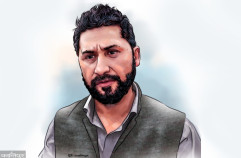Transitional Justice Bill: Free consent of child soldiers and victims yet to be agreed

We use Google Cloud Translation Services. Google requires we provide the following disclaimer relating to use of this service:
This service may contain translations powered by Google. Google disclaims all warranties related to the translations, expressed or implied, including any warranties of accuracy, reliability, and any implied warranties of merchantability, fitness for a particular purpose, and noninfringement.

Highlights
- The task force plans to finalize these two issues at Friday's meeting



In order to deal with transitional justice, a discussion has started between the parties on the bill regarding the Truth and Reconciliation Commission and the Disappeared Persons Investigation Commission pending in the Parliament on how to mention the issue of child soldiers in the law and what to do if there is no free consent of the victims in the case of reconciliation.

Congress, UML and Maoist top leaders held a meeting between the members of the working group formed three weeks ago, Ramesh Lakhtar, Mahesh Bertaula and Janardan Sharma, but could not reach an agreement on these two issues on Wednesday. "We could not sit for more than an hour and a half because of the cabinet meeting," says Bertaula, "we are planning to finish these two issues in the meeting on Friday." The Maoists did not allow it to be mentioned in the Transitional Justice Bill released in 2071. But the parties are forced to address the issue of child army recruitment in the proposed amendment bill after the former child soldiers put pressure on it.
'Since the constitution and the law have not mentioned anything about the children's army, there was a discussion about how to keep it, but the conclusion did not come out,' Bertarlau said, 'We are going to do homework before coming to the discussion on Friday.' After laying down their arms, the Maoist fighters sat in the 'cantonment' and went through the verification process. 2 thousand 973 people were found ineligible because they were minors in the verification process of army adjustment conducted by UNMIN.
The government provided 5 to 8 lakh rupees to the fighters who took voluntary retirement. However, he did not get such amount as he was proved ineligible. A petition filed by ex-child soldier Lenin Bista and others against Maoist Chairman Pushpa Kamal Dahal and the then chairman of the Jan Sarkar Baburam Bhattarai is pending in the Supreme Court, alleging that they have violated international human rights law by carrying weapons.
Similarly, the Maoist party has been arguing that 'free consent' should not be included in the provisions of the amendment draft prepared according to the Supreme Court's decision to amend the law to require the free consent of the victim in conflict-time cases that can be reconciled. "When it is written that the free consent of the victim is mandatory, it is seen that the victims go to court in all cases and there is no atmosphere of reconciliation," says Bertaula A consensus was reached on the definition of human rights violations and the punishments for those found guilty. The meeting agreed to agree on a legal provision to reduce the punishment for serious human rights violations during the armed conflict by up to 75 percent. However, human rights activists have opposed the agreement saying that giving a lesser sentence for some people is against the international principles of human rights and the rule of law that should be punished based on the seriousness of the crime.
 प्रकाशित : श्रावण १०, २०८१ ०६:०९
प्रकाशित : श्रावण १०, २०८१ ०६:०९

 २२.१२°C काठमाडौं
२२.१२°C काठमाडौं











